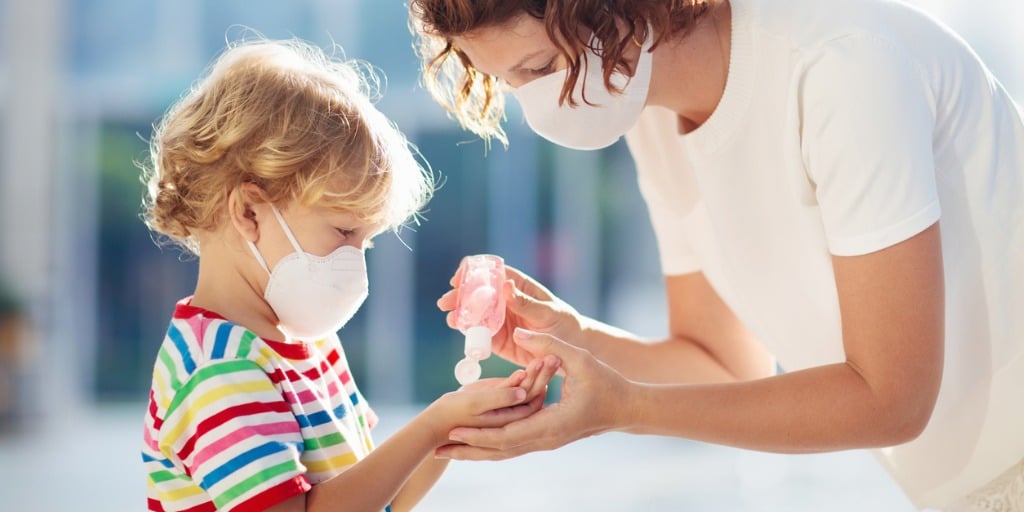6 tips for keeping kids safe during the pandemic
COVID-19 vaccines hold the promise of some day returning to a normal life, but there are currently no vaccines approved for children under 16. If you or your employees have young children, it's important to stay vigilant about health and safety.
Here are 6 tips you can share with your employees to help their children stay well — mentally and physically — during this phase of the pandemic.
1. Basic hygiene is still important
Even for vaccinated adults, it's essential to keep up with behaviors that prevent COVID-19. Continue to model these behaviors for your kids to keep them well. Wash your hands frequently. Avoid touching your face. Wipe down high-touch surfaces and encourage children to do the same. Wear a mask and maintain social distancing when you're outside of your home. And don't forget the hand sanitizer.
2. Talk about staying safe
Be clear about what you expect kids to do at home and in public. This is especially critical for teens who may be going out without your supervision. Stress the need to continue practicing smart preventive behaviors such as coughing or sneezing into a tissue or elbow, staying away from those who are sick, and avoiding group gatherings.
3. Stay socially connected — with limits
While you may begin to see others in person, make sure to limit your child’s in-person time with other children. Also limit time with high-risk individuals, including those who are 65+ and those who have chronic conditions. Help your child stay connected with people they can’t see in person through text messages, phone calls, the internet, or even letters.
4. Keep active and healthy
Encourage children to exercise, eat healthy, and get plenty of sleep. This will help boost their immune system and minimize stress. Weather permitting, encourage your children to spend time outside. There are also many free video activities and exercises available online to help kids get active indoors during the colder months.
5. Create a flexible but consistent daily routine
Routines helps kids feel more secure and be better behaved. Work with your kids or teens to help plan the routine for the day, especially if they are learning at home. Involving them in the process will make them more likely to follow it. Make sure you allow time for structured activities as well as free time. Include exercise as a part of each day.
6. Monitor your child for signs of stress
It’s important to recognize the stress or anxiety that your child may be experiencing. If you are concerned about how stress may be affecting your child, speak with your child’s doctor for guidance.
For more information about caring for kids and teens during the pandemic, visit the CDC.gov page on Keeping Kids Healthy.

